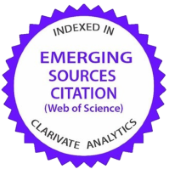Destination Image of Antalya from the Perspectives of Tourists Staying in Hospitality Establishments with the Concept of Halal Tourism
DOI:
https://doi.org/10.29036/jots.v11i21.168Keywords:
Halal Tourism, Destination Image, Islamic Marketing, Islamic Hospitality, AntalyaAbstract
The study's primary purpose is to reveal the destination image evaluations of Antalya by the tourists staying with the concept of halal tourism with the proposed model. In this context, the study was designed as survey-based quantitative research and was carried out on 660 tourists selected by a simple random sampling method in 6 hotels in Antalya destination. As a result of the structural equation modelling analyses, it was determined that the cognitive images of the tourists staying in hotels with the concept of halal tourism affected tourist satisfaction positively. Their effective images did not significantly impact tourist satisfaction, and that their effective images affected intention to recommend positively while their cognitive images influenced it negatively. Besides, it was found that both cognitive and affective image dimensions did not significantly affect intention to revisit. Furthermore, the results of the analyses indicated that cognitive images of the tourists positively affected their affective images. Tourist satisfaction had a positive impact on their intention to recommend and intention to revisit. According to the research results, it was determined that the cognitive image is a key element for the tourists staying in the halal concept to evaluate Antalya's destination. In this regard, it is evident that public policymakers and hotel managers should formulate their policies and strategies, taking into account the results of the research, as well as implementing policies and practices aimed at increasing the affective evaluations of tourists, which are more important than the cognitive evaluations of tourists in Antalya destination. Finally, it is believed that the study will reveal important practical implications in the context of developing policies and strategies for the managers of the hotels with the concept of halal tourism and for local authorities in the destination and revealing the relationship between destination image, tourist satisfaction and behavioural intentions.
Downloads
Downloads
Published
Issue
Section
License
Copyright (c) 2020 Journal of Tourism and Services

This work is licensed under a Creative Commons Attribution-NonCommercial-NoDerivatives 4.0 International License.
Journal of Tourism and Services (ISSN 1804-5650) is published by the Center for International Scientific Research of VŠO and VŠPP in cooperation with the following partners:
- Juraj Dobrila University of Pula, Faculty of Economics and Tourism, Croatia
- School of Business and Administration of the Polytechnic Institute of Setúbal, Portugal
- Szent István University, Faculty of Economics and Social Sciences, Hungary
- Pan-European University, Faculty of Business, Prague, Czech Republic
- Pan-European University, Faculty of Entrepreneurship and Law, Prague, Czech Republic
- University of Debrecen Faculty of Economics and Business, Hungary
- University of Zilina, Faculty of Operation and Economics of Transport and Communications, Slovakia
The publisher provides a free access policy to the Journal of Tourism and Services.





